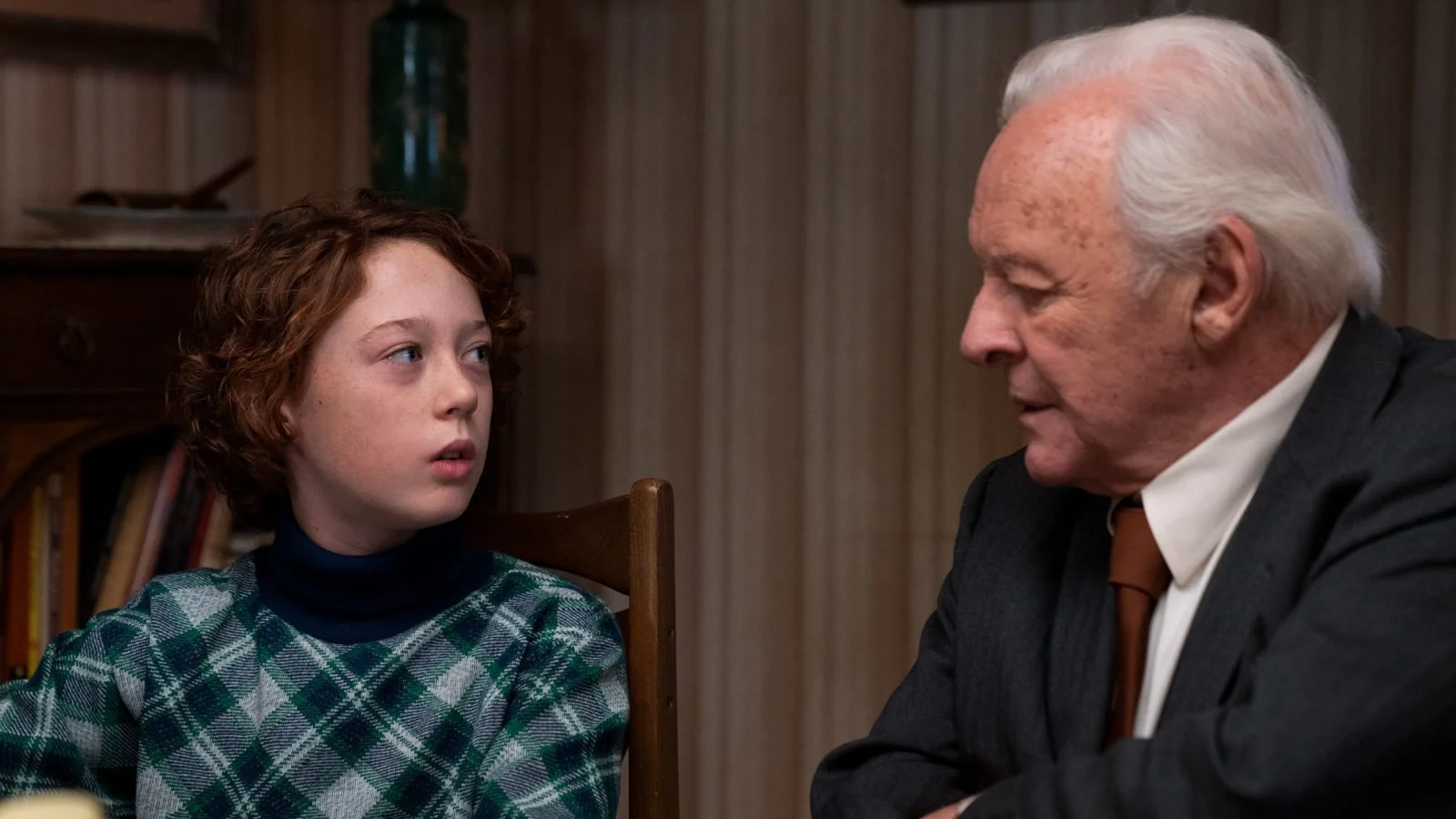Armageddon Time: A Personal and Poignant Retrospective
Note: This review contains minor spoilers for Armageddon Time. If you don’t want to know anything, I recommend you see it and come back here!
James Gray’s Armageddon Time is the most autobiographical and personal film he’s made yet. Gray’s previous film Ad Astra was one of my favorite films of 2019 and blew me away when I saw it in theaters. His last two films have delved deep into the relationships between fathers and sons and how varied and intricate they can be. Armageddon Time is no different.
Armageddon Time follows Paul Graff (Banks Repeta, previously seen in this year’s The Black Phone), a 12-year-old boy living in the suburbs of New York City in 1980. After getting into trouble with his best friend Johnny (Jaylin Webb), a young black boy at his school, his parents (Anne Hathaway and Jeremy Strong) send him to a private school with his older brother Ted (Ryan Sell) in an attempt to discipline him. His Jewish grandfather Aaron Rabinowitz (Anthony Hopkins), seems to be the only adult he respects, but when he passes away, things only go further downhill for Paul.
Armageddon Time captures a now-extinct time of American life. There was still hope and realism to working hard and achieving the “American Dream.” Kids would and could run wild without adult supervision. Disciplining your children physically with a belt was a more commonly accepted practice. And the country was about to elect Ronald Reagan, forever changing the economy, foreign relations, and much more. There was an ever-present fear, stoked by Reagan that things in the country were bleak and we would “see Armageddon” if there was no return to conservative values.
I will never know nor experience this period of American life. I can learn about it through books, films, and stories from my parents, but I will never understand the context of these changes as they were actively taking place. Armageddon Time is Gray’s most autobiographical film to date and pulls directly from his childhood. He weaves a world so complex and vivid that it’s easy to picture this period and imagine growing up as a Jewish child in such a tumultuous environment. Paul is, for lack of a better term, a little shit for the majority of the movie. He blatantly disrespects his parents and has little regard for anything other than his own desires, and it’s rare to see an accurately depicted child onscreen. Not all children are angels, and parenting is challenging.
When Paul witnesses the racism and slurs carelessly hurled at his best friend, Johnny, it forces him to recontextualize the world. His grandfather Aaron provides his personal context when he explains his Jewish heritage. Nazis brutally murdered his mother’s parents in Ukraine, and she escaped to America to start a new life. Although Hopkins is only onscreen for a fraction of the film, he’s compelling as usual. When Paul tells Aaron about the slurs the kids at his school use, he responds passionately, “Next time those schmucks say anything bad about those black kids, or those Hispanic kids, you be a mensch [person of integrity and honor] to those kids. They never had your advantage”. Later, Paul’s father says, “Life is unfair. Be thankful when you get a leg up. You make the most of your break and do not look back.” It’s a rude awakening but a necessary one nonetheless. It was very true in 1980 and, unfortunately, still somewhat true. Life isn’t fair, and sometimes the best we can do is use that leg up to help others who don’t have the same advantage.
Although there’s a lot I can’t relate to in Armageddon Time, there is one moment that hits home. When Paul’s grandfather Aaron is in the hospital, the look of helplessness on Paul’s face and his desperation not to leave him, as well as the difficulty in seeing your loved one in that state, is painful to see play out on screen. I lost my grandfather this year to a long battle with Alzheimer’s, and toward the end of his life, I could relate all too well to Paul’s experience. It is a brief but powerful moment, and I found it so moving that I was openly weeping in the theater. Some life experiences are universal, no matter if it’s happening in 1980 or 2022, and when a filmmaker like Gray is behind the camera, it’s easy for him to transport you to different worlds and different times while always keeping the focus on the heart of what makes life worth living.
Armageddon Time is in theaters now.
